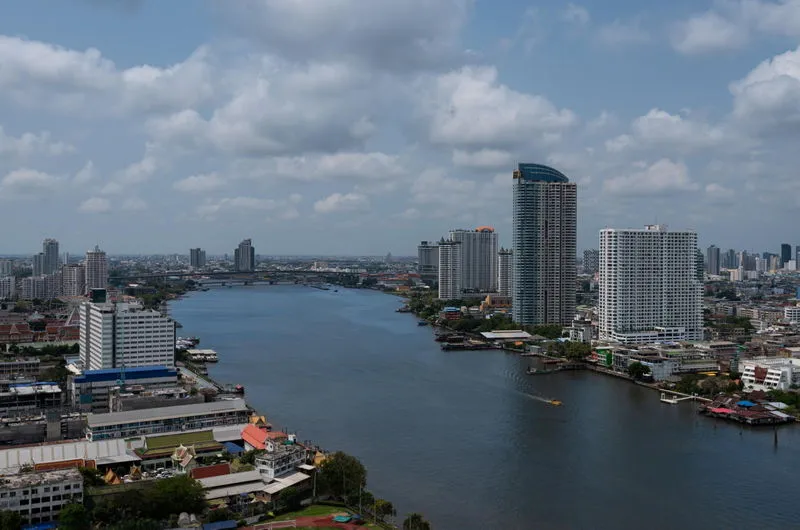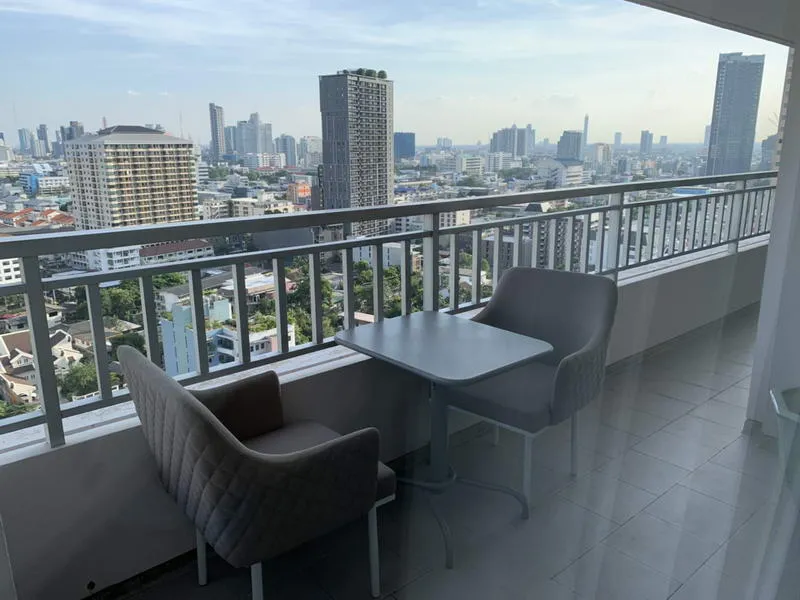One of the most significant decisions you'll face when relocating to or investing in this city is whether to rent or buy a condo. Both options have their pros and cons, and the right choice will depend on your personal circumstances, financial situation, and long-term goals. This article will delve into the key factors to consider when deciding between Renting vs Buying a Condo in Bangkok.

1. Financial Considerations
One of the most critical factors in deciding whether to rent or buy is your financial situation. Here’s how the costs break down for each option:
Renting: Renting a condo in Bangkok can be a more affordable option upfront. Most landlords require a two-month security deposit and one month's rent in advance, which means you only need three months' worth of rent to move in. Monthly rent varies depending on location, size, and amenities, but you can find options ranging from THB 20,000 to THB 100,000 or more.
Buying: Purchasing a condo, on the other hand, requires a more substantial financial commitment. Foreigners can buy condos in Thailand, but you’ll need a down payment of at least 20-30% of the property’s value, along with additional costs such as transfer fees, taxes, and legal fees. Mortgage options for foreigners are limited, and interest rates can be higher than those available to Thai nationals. However, owning a property in Bangkok can be a worthwhile investment, especially if property values appreciate over time.
2. Flexibility and Lifestyle
Your lifestyle and future plans play a significant role in the decision to rent or buy.
Renting: If you’re new to Bangkok or unsure how long you’ll stay, renting offers greater flexibility. Lease agreements typically range from six months to a year, allowing you to move to a different neighborhood, downsize, or upgrade your living situation without the hassle of selling a property. Renting is also ideal if you prefer a low-maintenance lifestyle, as landlords are usually responsible for major repairs and upkeep.
Buying: If you plan to stay in Bangkok long-term or see it as your permanent home, buying a condo can provide a sense of stability and ownership. While selling a property takes time, owning a condo allows you to customize your living space to your liking. It’s also worth noting that many of Bangkok’s most desirable condos are in prime locations with high potential for value appreciation, making buying a sound long-term investment.
3. Market Conditions and Investment Potential
Understanding the real estate market in Bangkok is crucial when making your decision.
Renting: Renting a condo means you are not directly affected by fluctuations in property values. You can benefit from falling rental prices during market downturns, and if the market becomes unfavorable, you can easily relocate. However, you won't benefit from any appreciation in property values, and over time, rent payments can add up to a significant amount without giving you ownership of an asset.
Buying: Buying a condo can be a smart investment, especially in Bangkok’s growing real estate market. The city has seen steady demand for condos due to its status as a business hub and popular tourist destination. Investing in a property in a prime location can yield rental income if you choose to lease it out, and you could see significant returns if property values increase over time. However, the market can be volatile, and there’s always the risk of property values declining.
4. Legal and Bureaucratic Considerations
Navigating the legal landscape is another critical factor when deciding between renting and buying a condo in Bangkok.
Renting: Renting a condo is relatively straightforward in Bangkok. Lease agreements are typically simple, and as a tenant, you have fewer legal responsibilities compared to owning a property. However, it's essential to review the lease terms carefully and understand your rights as a tenant under Thai law. Some leases include clauses that may not be in your favor, such as restrictions on early termination or subleasing.
Buying: Buying a condo involves more complex legal considerations. Foreigners can only own condos in Thailand under certain conditions, such as ensuring that foreign ownership in the building does not exceed 49%. You will need to provide proof of funds transferred from overseas and comply with various legal and bureaucratic processes. Hiring a reputable lawyer who specializes in Thai real estate law is highly recommended to navigate these challenges, although real estate agents such as Hero Realtor can give their clients solid advice. Additionally, you’ll be responsible for ongoing expenses such as property taxes, common area maintenance fees, and utilities.
5. Long-Term Financial Security
Your long-term financial security and retirement plans should also influence your decision.
Renting: Renting provides short-term financial security as it requires less upfront capital. You also have the flexibility to invest your savings elsewhere, such as in stocks, mutual funds, or other assets. However, renting does not build equity, and once you stop renting, you’re left with no tangible assets. Over many years, renting can be more costly than buying.
Buying: Buying a condo is often seen as a form of forced savings, as mortgage payments build equity in a tangible asset. Owning property can contribute to long-term financial security, especially in a city like Bangkok where property values are likely to appreciate. Upon retirement, you could have a mortgage-free home or a valuable asset that can be sold or rented out for additional income.

6. Emotional and Psychological Factors
Beyond the financial and practical aspects, emotional and psychological factors can also play a significant role in your decision.
Renting: Renting can provide peace of mind for those who prefer not to be tied down by a mortgage or long-term commitment. The flexibility to move easily and the absence of property maintenance responsibilities can reduce stress, especially for those who value a more carefree lifestyle.
Buying: On the other hand, buying a condo can offer a sense of pride and accomplishment. Homeownership is often associated with stability, security, and belonging, and owning your own space allows you to truly make it your own. For many, the emotional satisfaction of owning a home outweighs the financial and practical challenges.
Renting vs Buying a Condo in Bangkok: Which Is Right for You?
The Renting vs Buying a Condo in Bangkok discussion has no right or wrong. It all depends what you are looking for. Ultimately, the decision to rent or buy a condo in Bangkok depends on your financial situation, lifestyle preferences, long-term goals, and personal circumstances. Renting offers flexibility, lower upfront costs, and fewer responsibilities, making it an ideal choice for those who are new to the city, have a transient lifestyle, or prefer not to commit to property ownership.
On the other hand, buying a condo can be a sound investment, providing long-term financial security, stability, and the emotional satisfaction of owning your own home.
Before making your decision, carefully consider all these factors. By weighing the pros and cons of renting versus buying, you can make an informed choice that aligns with your needs and goals, ensuring a fulfilling and secure future in the vibrant city of Bangkok.
At Hero Realtor, we have a great choice of condos for both sale and rent. Click here to see a handpicked selection of Bangkok condos for sale. And click here to see some amazing Bangkok condos for rent.





